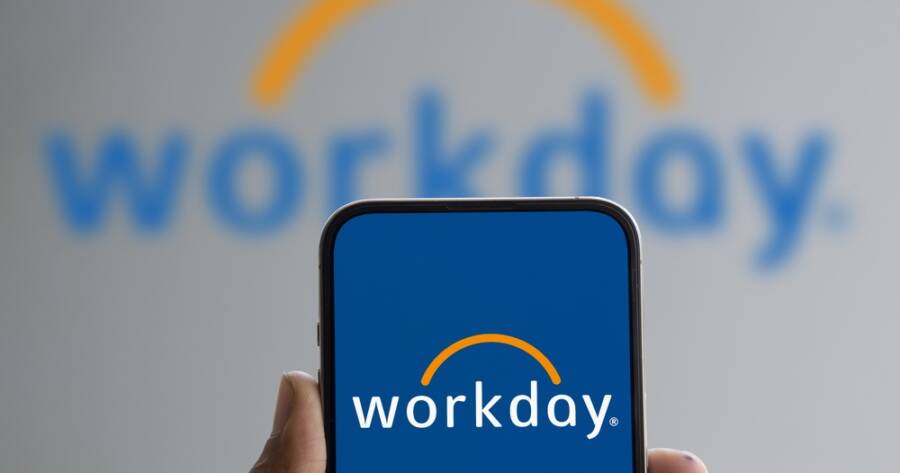Workday HR cloud solutions provide integrated tools for efficient workforce management and payroll processing. The platform also enhances employee engagement with user-friendly self-service features and offers analytics for informed HR decision-making.
What Are Workday HR Cloud Solutions?
Workday HR Cloud Solutions represent a comprehensive suite of human resource management tools designed to facilitate various HR functions within organizations. These solutions are cloud-based, allowing for real-time access to data and applications from anywhere, which is particularly beneficial in today’s increasingly remote work environment. Workday integrates various HR processes, including recruitment, talent management, payroll, and benefits administration, into a single platform.1 This integration not only simplifies HR operations but also enhances data accuracy and accessibility, enabling HR professionals to make informed decisions based on real-time information. Recent studies have shown that organizations utilizing cloud-based HR solutions like Workday experience improved efficiency and reduced operational costs. According to a report by Deloitte, companies that adopt integrated HR systems can streamline their processes significantly, leading to better resource allocation and enhanced employee satisfaction. Furthermore, the flexibility of Workday’s platform allows organizations to customize their HR solutions to meet specific needs, ensuring that they can adapt to changing workforce dynamics and regulatory requirements. The importance of Workday HR Cloud Solutions is underscored by the growing trend of digital transformation in HR. As organizations seek to leverage technology to improve their HR functions, Workday stands out as a leader in the market. Its commitment to innovation and user experience has made it a preferred choice for many businesses looking to modernize their HR practices and enhance overall organizational performance.
Streamline Workforce Management and Payroll with Workday
Workday’s capabilities in workforce management and payroll are designed to simplify complex processes and enhance operational efficiency. The platform provides tools for scheduling, time tracking, and attendance management, which are essential for organizations to optimize their workforce. By automating these processes, Workday reduces the administrative burden on HR teams, allowing them to focus on strategic initiatives rather than routine tasks. This automation not only saves time but also minimizes errors associated with manual data entry, leading to more accurate payroll processing. Moreover, Workday’s payroll functionality is robust and compliant with various regulations, ensuring that organizations can manage their payroll processes seamlessly. The platform supports multiple pay structures and currencies, making it suitable for global organizations. Recent research indicates that companies using Workday for payroll management report higher levels of employee satisfaction due to timely and accurate payments. This satisfaction is crucial for maintaining employee morale and retention, particularly in competitive job markets. In addition to payroll, Workday’s workforce management tools provide valuable insights into employee performance and productivity. By analyzing data related to attendance and work patterns, organizations can make informed decisions about staffing and resource allocation. This data-driven approach not only enhances operational efficiency but also supports strategic workforce planning, enabling organizations to align their human resources with business objectives effectively.
Enhance Employee Engagement and Gain Insights with Workday Analytics
Employee engagement is a critical factor in organizational success, and Workday offers tools designed to enhance this aspect through user-friendly self-service features. Employees can access their personal information, benefits, and performance data, empowering them to take charge of their career development. This self-service capability fosters a culture of transparency and accountability, which is essential for maintaining high levels of engagement. Research has shown that organizations that prioritize employee engagement see improved productivity and lower turnover rates, making it a vital area for HR focus. Workday’s analytics tools further enhance employee engagement by providing insights into workforce trends and behaviors. These analytics capabilities allow HR professionals to identify patterns related to employee satisfaction, performance, and retention. By leveraging this data, organizations can implement targeted initiatives to address areas of concern, such as employee burnout or disengagement. The importance of data-driven decision-making in HR can include emphasizing that organizations that utilize analytics are better equipped to create effective engagement strategies.2 In addition to improving engagement, Workday’s analytics tools support informed decision-making in HR strategies. By analyzing data from various HR functions, organizations can gain a holistic view of their workforce and make strategic adjustments as needed. This capability is particularly important in today’s fast-paced business environment, where agility and responsiveness are key to maintaining a competitive edge. As organizations continue to navigate the complexities of workforce management, the insights provided by Workday analytics will be invaluable in shaping effective HR strategies.
Learn More About Workday HR Solutions
For those interested in exploring the capabilities of Workday HR solutions further, a wealth of resources is available. Engaging with case studies, white papers, and industry reports can provide deeper insights into how organizations are successfully leveraging Workday to enhance their HR functions. Additionally, attending webinars and conferences focused on HR technology can offer valuable perspectives from industry experts and practitioners. Understanding the full potential of Workday can empower organizations to make informed decisions about their HR strategies and drive meaningful improvements in workforce management and employee engagement.
